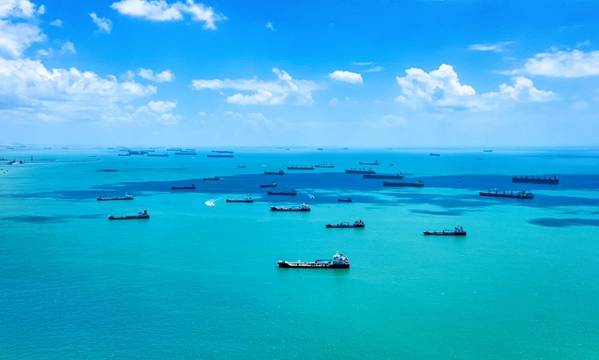
Wärtsilä has secured a contract from the Maritime and Port Authority of Singapore (MPA) to develop the prototype for a cutting-edge vessel traffic management system. This initiative, known as the Next Generation Vessel Traffic Management System (NGVTMS), aims to revolutionize maritime safety and efficiency at one of the world's most bustling ports. The order was finalized by Wärtsilä in the third quarter of 2024.
As Singapore advances its position as a leading global maritime hub, the rising volume of maritime traffic underscores the urgent need for more sophisticated traffic management solutions. In response, the MPA is spearheading a move toward AI-driven technologies designed to boost navigational safety and optimize port operations. After a thorough evaluation process, Wärtsilä was chosen in April 2024, along with other industry leaders, to bring the project to life.
"MPA is committed to the maritime industry’s digital transformation and green transition by leveraging cutting-edge technology and working with like-minded partners to enhance the safety, efficiency and sustainability of port operations,” said David Foo, Assistant Chief Executive (Ops-Tech) at the Maritime and Port Authority of Singapore (MPA). “MPA awarded the tender to three companies, including Wärtsilä, to develop the NGVTMS prototype using an agile approach, based on open system architecture. With its innovative solutions and deep domain knowledge, Wärtsilä will play an important role in this project and help explore new standards for maritime traffic management.”
Over the next 15 months, Wärtsilä will work closely with the MPA at its Maritime Innovation Lab 2.0. The company's role will be to create a system with an open architecture that incorporates cutting-edge features such as advanced data analytics to identify traffic congestion and machine learning algorithms to predict potential collisions. This technology will enable vessel traffic officers to manage increasing traffic volumes and complex scenarios more effectively and safely.
“The NGVTMS initiative represents a collaborative venture aimed at redefining the future of maritime traffic management through advanced technology and shared expertise. Wärtsilä is honoured to bring our state-of-the-art solutions and deep industry knowledge to this transformative project, helping to establish new benchmarks in the field,” said Hannu Mäntymaa, Vice President for Voyage Services, Wärtsilä Marine.
Wärtsilä’s involvement in the NGVTMS project will highlight its expertise and extensive capabilities in the maritime sector. The company’s strengths include innovative solutions in alternative fuel engine management, fleet and port optimization, and advanced simulation and training technologies. This project aligns with Wärtsilä’s mission to foster sustainable development through technological innovation and services.
With its Vessel Traffic Management Systems already operational in over 55 countries and more than 300 installations worldwide, Wärtsilä's dedication to innovation and sustainability supports Singapore's goal of creating a smarter, greener maritime industry. This collaboration underscores Wärtsilä’s role in the broader energy transition agenda.



